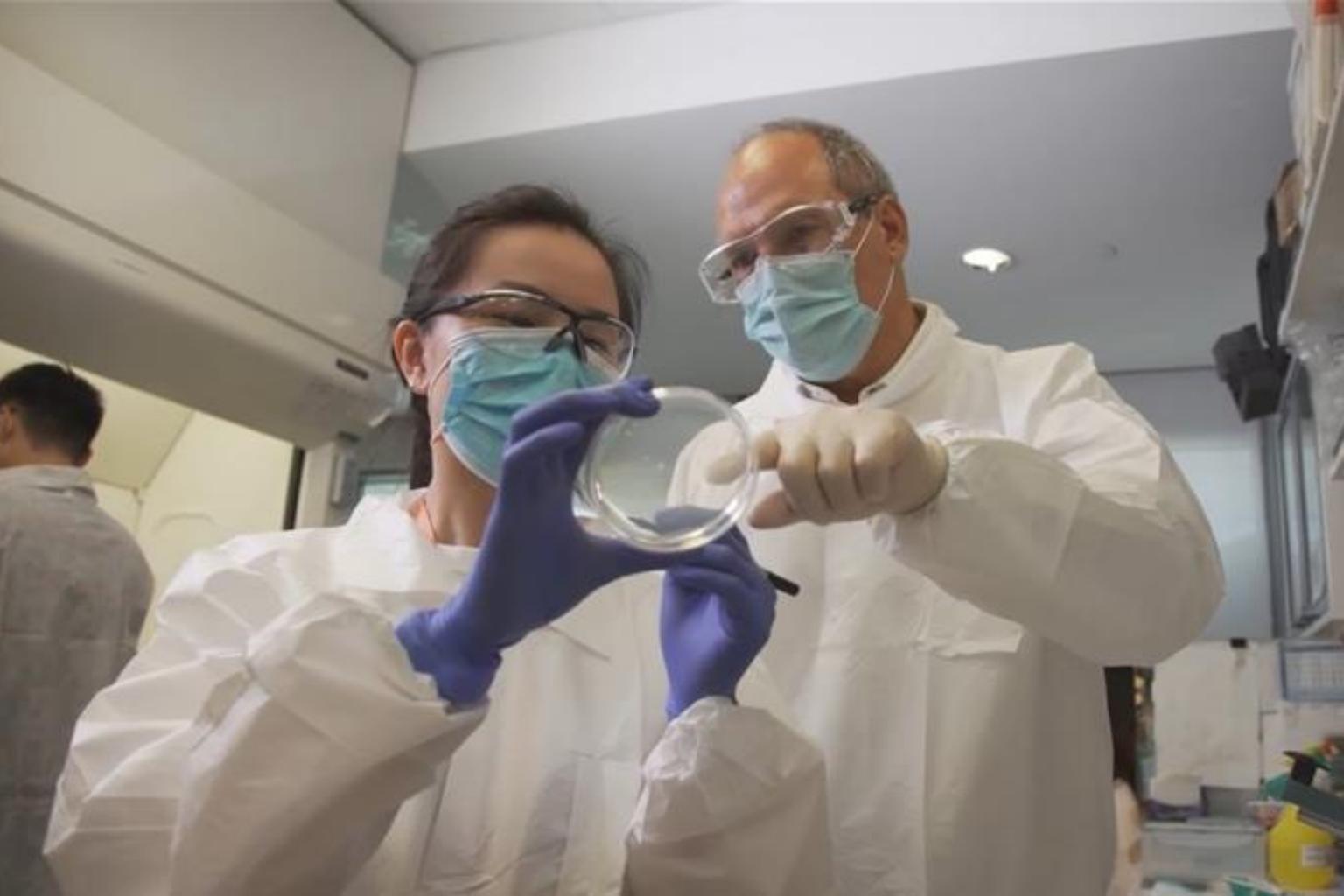A*Star's new outfit to coordinate research efforts on Covid-19 and other diseases
Sign up now: Get ST's newsletters delivered to your inbox

The aim of the Infectious Diseases Labs is to nip any emerging pathogen in the bud before it can cause an outbreak.
PHOTO: A-STAR.EDU.SG
Follow topic:
SINGAPORE - A new outfit was set up by the Agency for Science, Technology and Research (A*Star) in April this year to coordinate disease-specific research efforts by the various groups under the agency.
Called the Infectious Diseases Labs, or ID Labs for short, its aim is to nip any emerging pathogen in the bud before it can cause an outbreak, said its executive director Professor Lisa Ng on Tuesday (June 1) during a panel discussion on Covid-19 organised by The Straits Times.
Said Prof Ng: "To better the odds of winning the war against the coronavirus, the research groups collaborated to develop effective strategies and technologies for diagnosis and prevention."
A*Star also worked closely with other local partners, including the National Centre for Infectious Diseases (NCID), National University Health System, SingHealth, as well as regional and international collaborators, she added.
This collaboration has helped bring science from the laboratory bench to patients' bedsides - getting research prototypes into clinical testing and out to the market for effective infectious disease prevention, control and elimination, she said.
For instance, the Fortitude Kit - one of the first diagnostic test kits to be used in Singapore to identify people infected with the coronavirus - had been an effort by various research groups under A*Star and Tan Tock Seng Hospital.
"One of ID Labs' immediate focus is to understand and control Covid-19 through multiple collaborations with other institutions and laboratories," Prof Ng said.
This includes tracking the ongoing mutations of the virus, and conducting studies to see how these mutations could affect disease severity and the effectiveness of vaccines.
"Together with our clinical partners such as NCID, ID Labs is also examining whether the Covid-19 vaccines are effective in the Singapore population, given our unique genetic makeup of various ethnicities," Prof Ng added.
ID Labs will complement and support the national research programme for epidemic preparedness and response, she added.
This programme, dubbed Prepare, was announced last December during the launch of Singapore's $25 billion plan charting the country's research landscape over the next five years.
Prof Ng said another key area of focus for A*Star is to prepare for outbreaks in the future.
"We know that new infectious diseases are emerging more frequently... This ongoing Covid-19 pandemic is just the latest in a series of new infectious diseases," she said.
ID Labs will begin this endeavor with clinical surveillance to monitor for emerging pathogens that can cause infectious diseases and a pandemic.

Surveillance activities include looking out for unusual spikes of activity from a concentrated geographical area, as this may indicate the location of a new disease outbreak.
ID Labs will also look into the identification of an emerging pathogen through a combination of approaches - such as genetic sequencing, novel-detection assays, bioinformatics and modelling.
"This will be followed by studies in suitable pre-clinical models, which will then be used to develop and test new therapies such as drugs and vaccines to fight the emerging pathogen immediately," she said.
Prof Ng was one of three experts who took part in the panel discussion.
The other two experts were Prof Teo Yik Ying, dean of the National University of Singapore's Saw Swee Hock School of Public Health, and Dr Danny Soon, chief executive of the Consortium for Clinical Research and Innovation, Singapore. Dr Soon is also a member of the Health Ministry's Expert Committee on Covid-19 Vaccination.

